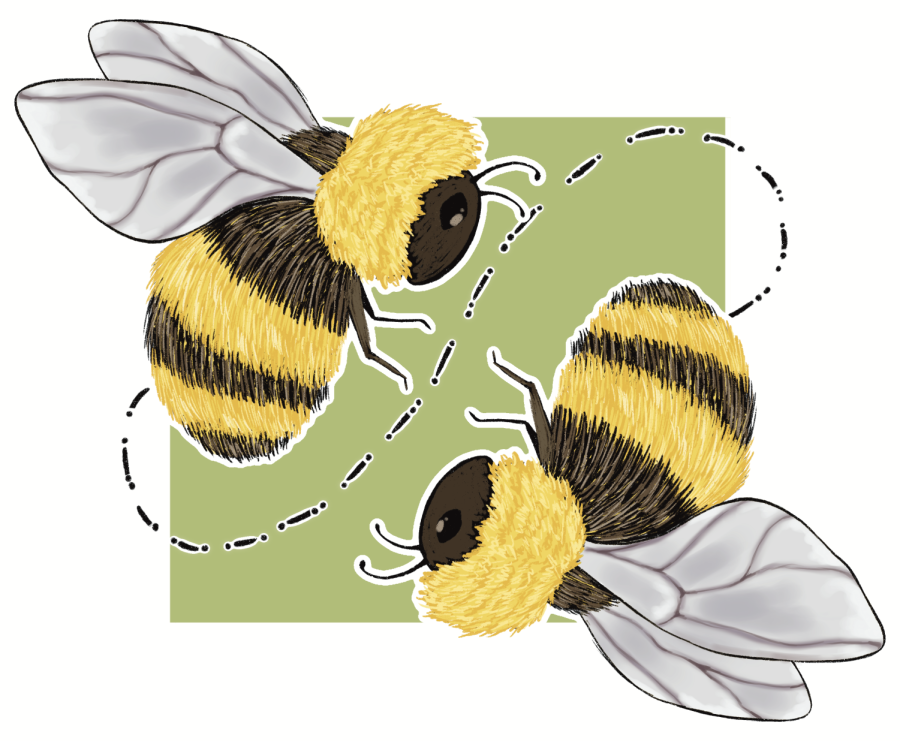New engineered gut bacteria could help save bee colonies from common parasite
July 4, 2023
UT researchers modified the bacteria found in the gut of honey bees to protect the bees from common parasite Nosema, according to a study released June 12.
Published by the Proceedings of the National Academy of Sciences of the United States of America, four authors released their report of the research that stated the engineered gut bacteria could be passed from bee to bee in colonies and help eliminate the threat of Nosema among these colonies.
Research Associate Eli Powell said the lab uses the gut bacteria Snodgrassella alvi to produce RNA strands similar to the DNA strands of Nosema and cause the Nosema to die off.
“It means there is an additional treatment that seems to work against Nosema,” Powell said. “It’s a potential treatment that could become attractive as time passes as long as investigators can ensure that it’s safe out in the environment, and it doesn’t pose a threat to other insects or things like that.”
Nick Ivers, a postdoctoral scholar at Pennsylvania State University, said he worries about the implications of putting bees with the genetically changed gut bacteria out in the wild.
“My only issue is that those sorts of manipulations may have unintended consequences on other species that come into contact with those organisms,” Ivers said.
Ivers said the four main contributors to the decline in bees across the world are land use change (habitat loss), pesticides, parasites and climate change, and three of those are human-induced.
“These parasites are biological entities that are doing their own thing in the world,” Ivers said. “The level of stress that these parasites are having on our populations of bees, maybe worse due to these sort of confounding or additional stressors. Parasites are the only thing that is biological in origin and not induced by humans.”
Ivers said the parasites also have a regulatory role among bee populations so their presence isn’t necessarily always bad.
“On the one hand, these parasites do have known fitness effects in the bees that they parasitize. All parasites fundamentally have a negative impact on the hosts that they infect,” Ivers said. “It may not be good for that particular individual or that particular species. But, when you look at the community overall, it may be healthier as a result of the presence of that parasite.”
Ivers said he wants to warn others of the potential downfalls of introducing genetically altered bees into the wild.
“We should have extreme caution with using genetically engineered strains in bees that are going to go out and forage in the wild,” Ivers said. “That’s my big warning.”
Powell said studying this gut bacteria can help us to understand its uses and purpose better.
“Our lab and other labs have shown that these bacteria are important in how the bees develop, in how their immunity works,” Powell said. “So just having one more tool to understand the ways in which these bacteria can impact the health of their host is important not just for bees, but you know, even humans have a set of bacteria that live in our guts that have big impacts for our health.”












